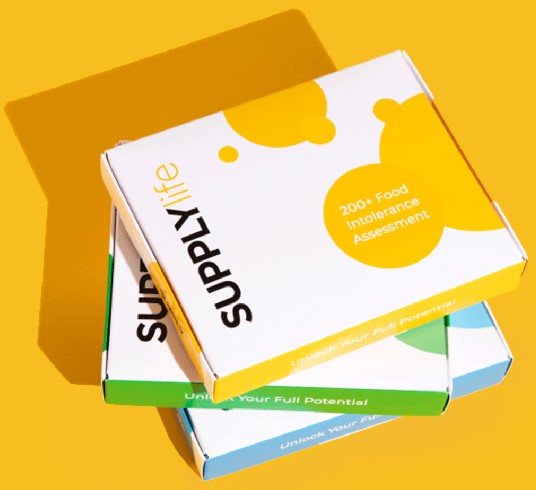Discovering you have a food intolerance can be a life-changing moment. It's the first step towards understanding how your body interacts with the foods you eat and, more importantly, how you can adapt your diet for optimal health. Here at Supply Life, our team of dedicated nutritionists is committed to providing you with comprehensive after-test support. We understand that interpreting your home food intolerance test results and making necessary dietary adjustments can be daunting. That's why we're here to guide you every step of the way, from understanding your test results to transitioning to a more suitable eating plan that caters to your unique nutritional needs.
Interpreting Your Test Results
Once you receive your home food intolerance test results, you might find yourself looking at a list of foods with varying levels of intolerance indicated. These results are your roadmap to a happier, healthier gut. Here's how to start:
Understanding the Scores
Your test results will categorise foods based on your body's reaction to them, using a scoring system. Foods that show a higher score are those your body is more intolerant to and should be your first priority when considering dietary changes.
Identifying Your Triggers
Start by focusing on the foods with the highest intolerance levels. These are your primary triggers and are the most important to eliminate or reduce in your diet to see improvements in your symptoms.
Making Dietary Adjustments
Knowing which foods to avoid is just the beginning. The next step is figuring out how to adjust your diet without compromising on nutrition or enjoyment of food.
Elimination and Substitution
Begin by eliminating your primary trigger foods. However, it's crucial to find suitable substitutes to ensure you're still getting a balanced diet. For example, if you're intolerant to dairy, consider alternatives like almond milk or coconut yogurt.
Reading Labels
Become an expert label reader. Many processed foods contain hidden ingredients that could be problematic. Learning to identify these hidden sources of your trigger foods is key to avoiding them.
Experimenting with New Foods
Use this as an opportunity to diversify your diet. Explore gluten-free grains like quinoa and buckwheat, or experiment with lactose-free recipes. You might discover new favourites that are both delicious and safe for you to eat.
After-Test Support from Supply Life
At Supply Life, we understand that adjusting to a new diet can be challenging. That's why our team of nutritionists is here to provide you with personalized after-test support.
Personalizsed Diet Plans
Based on your test results, our nutritionists can create a tailored diet plan that eliminates your trigger foods while ensuring you receive all the necessary nutrients for a balanced diet.
Continuous Support and Guidance
Adapting to a new way of eating isn't always straightforward. Our team is here to offer ongoing support, answer your questions, and help you navigate any challenges you might face.
Educational Resources
We provide a wealth of resources to help you understand food intolerances, learn how to manage them, and discover new ways to enjoy food without compromising your health.
Embracing a New Way of Eating
Adapting your diet based on your food intolerance test results is a significant step towards improving your health and well-being. With the right tools, resources, and support from Supply Life, you can make this transition smoothly and enjoyably. Remember, it's not just about removing certain foods from your diet; it's about embracing a new way of eating that nourishes your body and enhances your life.






